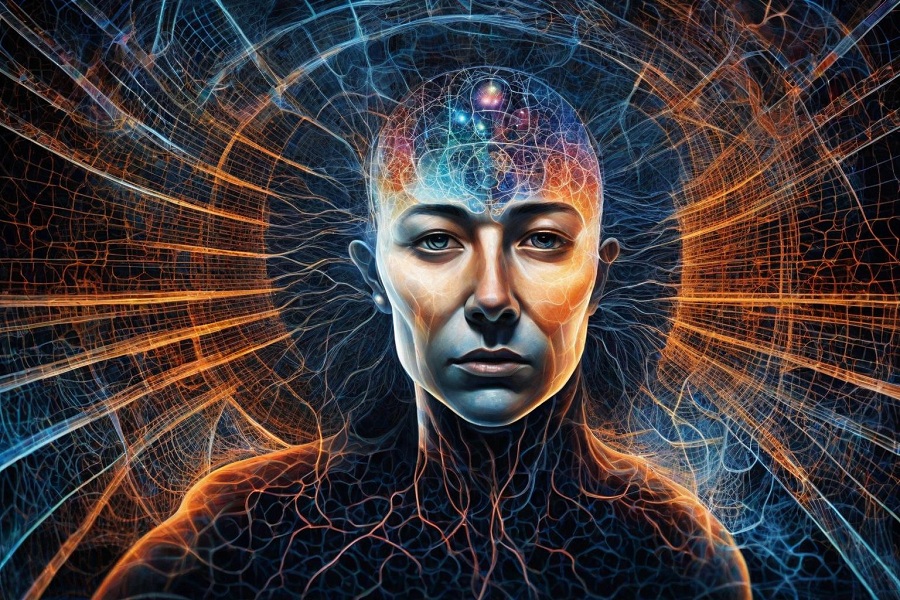Exploring the intricate relationship between consciousness and quantum physics is akin to unraveling a multidimensional puzzle. As we delve deeper into the realm where the mind meets the microcosmic world, we find ourselves confronted with revolutionary concepts and mind-bending theories. The quest to understand quantum consciousness is not just a scientific endeavor but a philosophical odyssey that promises to redefine our understanding of reality.
The Essence of Consciousness: A Quantum Enigma
Consciousness remains one of humanity’s grandest puzzles—an enigma so profound that it is often termed the “hard problem.” This mystery is the driving force behind numerous studies and debates concerning the origin and nature of conscious experience.
Contemporary Theories and Debates
- Traditional Neuroscience: Suggests that consciousness arises from complex computations conducted by networks of neurons.
- Quantum Theories: Propose that consciousness is inherently linked to the quantum domain.
Quantum Physics and the Conscious Mind
Quantum physics, with its non-locality, superposition, and entanglement, offers a fertile ground for theories that attempt to explicate consciousness. Over the years, several hypotheses have emerged, some more controversial than others, suggesting that the brain might operate on quantum principles.
The Penrose-Hameroff Orch-OR Model
- One of the most-discussed quantum consciousness theories is the Orchestrated Objective Reduction (Orch-OR) model proposed by Sir Roger Penrose and Dr. Stuart Hameroff.
- It suggests that microtubules, components of the cell’s cytoskeleton, serve as quantum processors within the brain, influencing neuronal function and contributing to the emergence of consciousness.
Questions and Challenges
- Experiments conducted on the quantum theory of consciousness, such as those in underground experiments negating environment-induced decoherence, have cast doubt on easy formulations of Orch-OR.
- Nevertheless, proponents of quantum models contend that these results don’t invalidate the idea outright but indicate a need for more sophisticated notions and experimental designs.
Bridging the Quantum and the Mental
Recent research advances are striving to make meaningful connections between the consciousness observed in brain activity and the abstract principles governing quantum systems.
Intriguing Findings and Speculations:
- Neural Network Quantum States: Some studies suggest that the brain’s neuronal network could manifest quantum states that give rise to consciousness.
- Quantum Computation in the Brain: Innovative research has hinted that the brain might utilize quantum computation through processes yet to be fully understood.
- Adaptation of Quantum Gravity Ideas: Researchers are now using ideas from quantum gravity to probe the brain’s workings, potentially uncovering links between cognitive processes and quantum phenomena.
The Future of Quantum Consciousness Studies
As we continue to probe the depths of both consciousness and quantum systems, the following developments can be anticipated:
- Richer Interdisciplinary Collaboration: Joining hands between neuroscientists, physicists, and philosophers.
- Advanced Experimental Techniques: Leveraging cutting-edge technology to test the quantum consciousness hypothesis.
- Philosophical Implications: Engaging with the ethical, psychological, and metaphysical questions that such theories inevitably raise.
In summary, the pursuit of understanding quantum consciousness is a testament to humanity’s insatiable curiosity about the fundamental nature of reality. As the debate continues and research progresses, we edge closer to perhaps revealing the very essence of what it means to be conscious—a mystery that resonates at the heart of our existence.



